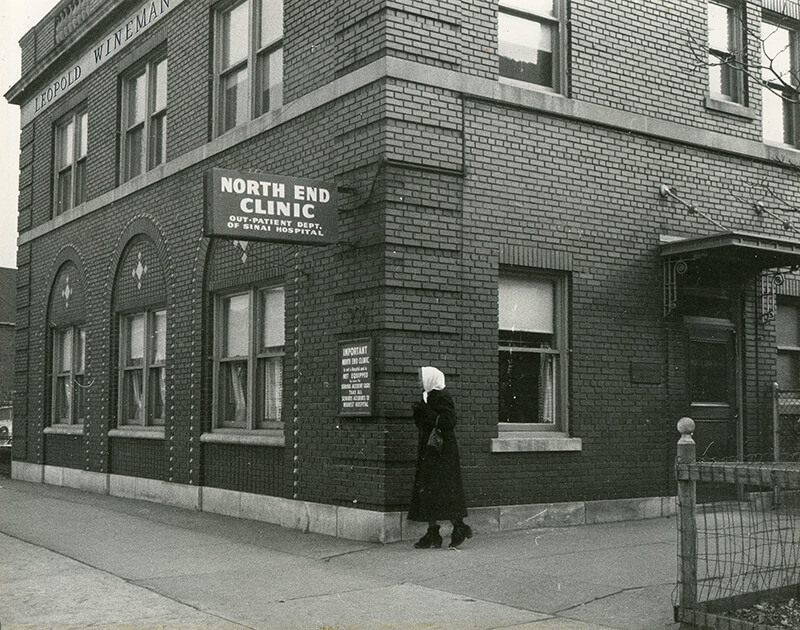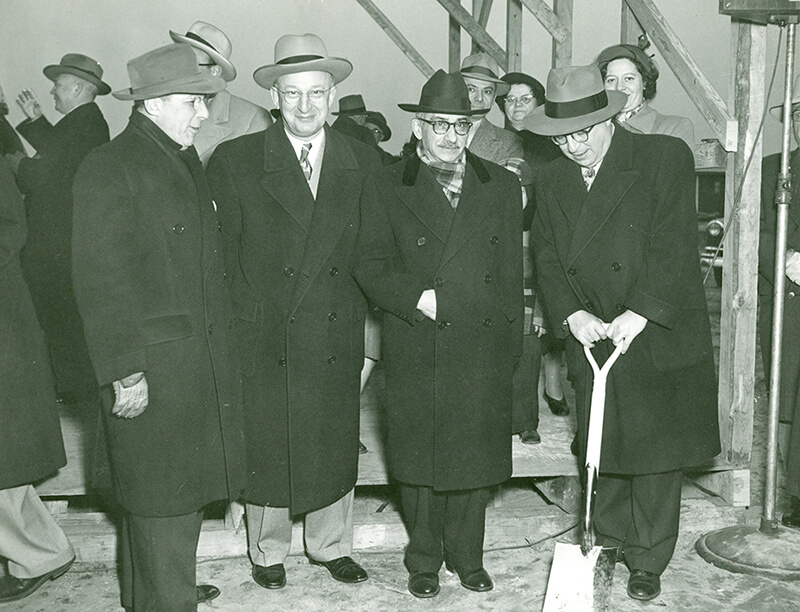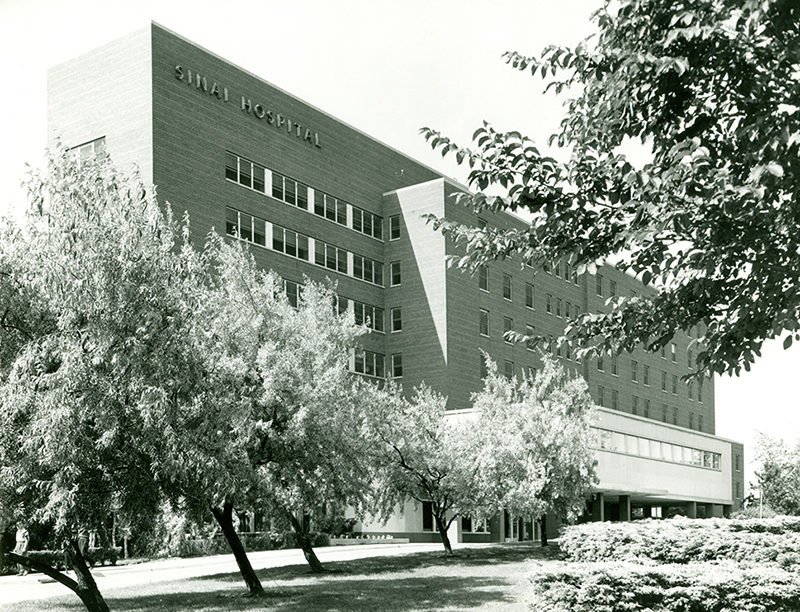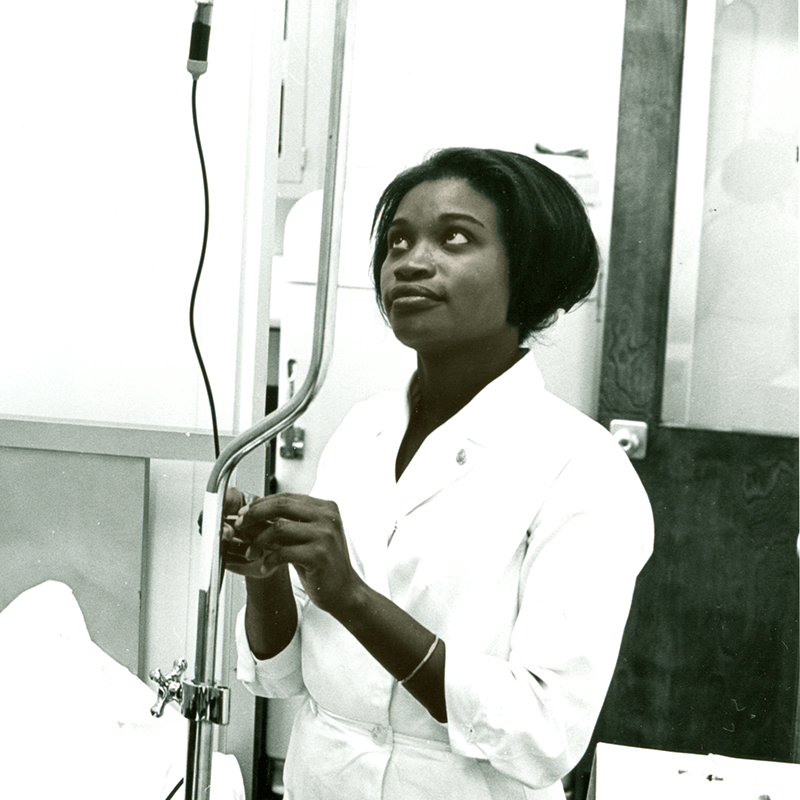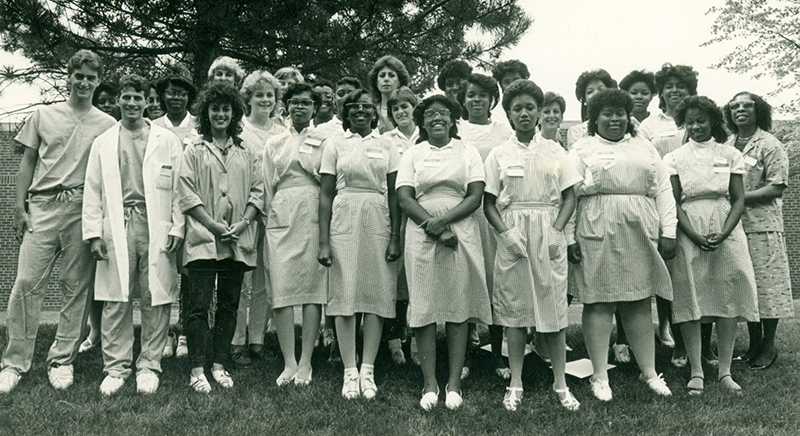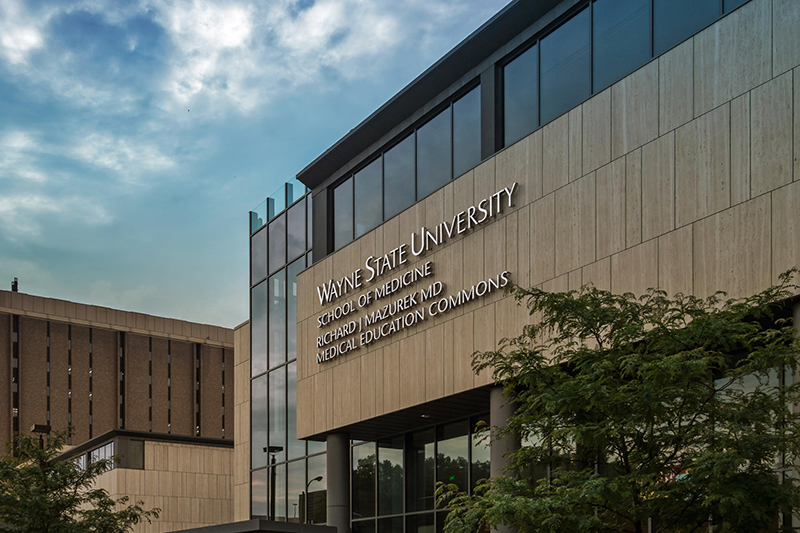Sinai Hospital of Detroit opened its doors in 1953. The Jewish community of Detroit had long desired their own hospital, where kosher food, Jewish clergy and Jewish cultural traditions would be the norm, rather than the exception. Some members of the Detroit Jewish community began raising money for such a facility as early as 1912. In 1926 they succeeded in building the North End Clinic — named after its location — an outpatient clinic that specialized in treating low-income Jewish patients and training young Jewish doctors. After the North End clinic opened, a growing number of people agreed that a modern Jewish general hospital would be a great asset to the community, and fund raising began in earnest.
The History of Sinai Hospital
The Dream of a Jewish Hospital
The Dream of a Jewish Hospital
Sinai Hospital of Detroit opened its doors in 1953. The Jewish community of Detroit had long desired their own hospital, where kosher food, Jewish clergy and Jewish cultural traditions would be the norm, rather than the exception. Some members of the Detroit Jewish community began raising money for such a facility as early as 1912. In 1926 they succeeded in building the North End Clinic — named after its location — an outpatient clinic that specialized in treating low-income Jewish patients and training young Jewish doctors. After the North End clinic opened, a growing number of people agreed that a modern Jewish general hospital would be a great asset to the community, and fund raising began in earnest.
A Mission to Serve Patients of All Races
Although Sinai was originally founded to serve Jewish patients, it was unique among hospitals in the Detroit area because it always served patients of all races and religions. When it opened in 1953, Sinai was one of the few hospitals that welcomed African-American patients. Sinai also had an ethnically-diverse staff. While the majority of the attending doctors were Jewish, the nurses and technicians came from every race and religion.
A Mission to Serve Patients of All Races
Although Sinai was originally founded to serve Jewish patients, it was unique among hospitals in the Detroit area because it always served patients of all races and religions. When it opened in 1953, Sinai was one of the few hospitals that welcomed African-American patients. Sinai also had an ethnically-diverse staff. While the majority of the attending doctors were Jewish, the nurses and technicians came from every race and religion.
Sinai as a Teaching Hospital
Sinai was a teaching hospital that attracted residents from all over the world. Sinai was always affiliated with Wayne State University Medical School. Many of Sinai’s medical staff were also professors at Wayne, and WSU Medical School students would take specialty rotations at Sinai.
Sinai as a Teaching Hospital
Sinai was a teaching hospital that attracted residents from all over the world. Sinai was always affiliated with Wayne State University Medical School. Many of Sinai’s medical staff were also professors at Wayne, and WSU Medical School students would take specialty rotations at Sinai.
The Sinai Hospital Education Corporation
Throughout Sinai’s history, about fifteen percent of its patients were indigent. The doctors decided early on that they would not keep the monies paid to them by the government for the care of these patients. Instead, they donated the money to the Sinai Hospital Education Corporation, which used the money to educate interns and residents, and for medical research. When Sinai was sold to the Detroit Medical Center in 1997, the Education Corporation disassociated itself from the hospital and became an independent corporation. In 2000 the Education Corporation became the Sinai Medical Staff Foundation.
The Sinai Hospital Education Corporation
Throughout Sinai’s history, about fifteen percent of its patients were indigent. The doctors decided early on that they would not keep the monies paid to them by the government for the care of these patients. Instead, they donated the money to the Sinai Hospital Education Corporation, which used the money to educate interns and residents, and for medical research. When Sinai was sold to the Detroit Medical Center in 1997, the Education Corporation disassociated itself from the hospital and became an independent corporation. In 2000 the Education Corporation became the Sinai Medical Staff Foundation.

